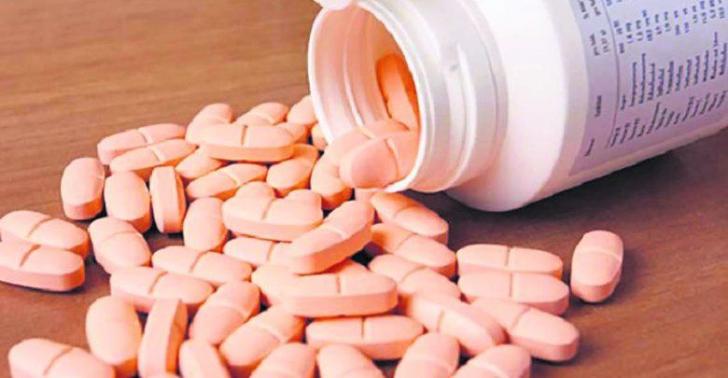News / National
Zimbabwe allays fears of ARV shortages
10 Apr 2025 at 07:58hrs |
18 Views

The Government has assured Zimbabweans that the country has adequate stocks of anti-retroviral drugs (ARVs), following concerns about potential shortages after reports that the United States Government may reduce aid for HIV and Aids programmes.
Fears of an impending crisis had gripped parts of the health sector amid news of a shift in U.S. foreign policy under President Donald Trump's administration, which has reportedly been scaling back funding in key global health areas, including support for pandemics such as HIV, Aids, malaria, and tuberculosis.
Speaking at a National Aids Council (NAC) media workshop in Chinhoyi, Minister of Health and Child Care, Dr Douglas Mombeshora, moved to calm public anxiety, stating that Zimbabwe had secured sufficient ARV supplies to last until September 2025.
"There is no need to panic. We have put in place strategies to ensure that our people continue accessing life-saving drugs. By the end of June, we will be receiving new stocks," said Dr Mombeshora.
He revealed that Government had mobilised US$12 million for the importation of additional ARVs, a move expected to cushion the nation amid the uncertainty surrounding donor support.
"We purchase these drugs in batches so that we don't run out, and with the US$12 million allocation, we will have enough stocks to take us up to September," he added.
The United States remains one of Zimbabwe's largest health sector donors, contributing both directly and through multilateral institutions like the Global Fund. According to Dr Mombeshora, U.S. support accounts for about 36 percent of the country's funding for HIV, malaria, and tuberculosis programmes.
"To cover for this 36 percent gap, we are reprioritising funding to ensure procurement of ARVs, malaria, and TB drugs is not compromised," he said. "Our aim is to ensure no Zimbabwean dies due to lack of medication."
Dr Mombeshora underscored Government's commitment to self-sufficiency, in line with President Emmerson Mnangagwa's development philosophy, "Nyika inovakwa nevene vayo" (a country is built by its own people).
"Donors are welcome, but they must be considered a bonus. We are taking responsibility for our people," the minister emphasized.
He also highlighted positive developments in the fight against HIV and Aids, noting that Zimbabwe had reached the UNAIDS 95-95-95 targets - 95% of people living with HIV knowing their status, 95% of those diagnosed on treatment, and 95% of those on treatment achieving viral suppression.
"Still, we cannot afford to relax. We must continue targeting vulnerable groups such as sex workers and adolescents to sustain the progress," he said.
Looking ahead, the Minister announced plans to roll out a National Health Insurance Scheme that would provide medical cover to every Zimbabwean. The Ministry of Finance is currently working on funding modalities for the initiative.
"This scheme will help us mobilise sufficient domestic funding to boost our health system and ensure every citizen has access to healthcare," Dr Mombeshora said.
The announcement comes as a welcome relief for thousands of Zimbabweans living with HIV, many of whom rely on free ARV access for survival.
Fears of an impending crisis had gripped parts of the health sector amid news of a shift in U.S. foreign policy under President Donald Trump's administration, which has reportedly been scaling back funding in key global health areas, including support for pandemics such as HIV, Aids, malaria, and tuberculosis.
Speaking at a National Aids Council (NAC) media workshop in Chinhoyi, Minister of Health and Child Care, Dr Douglas Mombeshora, moved to calm public anxiety, stating that Zimbabwe had secured sufficient ARV supplies to last until September 2025.
"There is no need to panic. We have put in place strategies to ensure that our people continue accessing life-saving drugs. By the end of June, we will be receiving new stocks," said Dr Mombeshora.
He revealed that Government had mobilised US$12 million for the importation of additional ARVs, a move expected to cushion the nation amid the uncertainty surrounding donor support.
"We purchase these drugs in batches so that we don't run out, and with the US$12 million allocation, we will have enough stocks to take us up to September," he added.
The United States remains one of Zimbabwe's largest health sector donors, contributing both directly and through multilateral institutions like the Global Fund. According to Dr Mombeshora, U.S. support accounts for about 36 percent of the country's funding for HIV, malaria, and tuberculosis programmes.
"To cover for this 36 percent gap, we are reprioritising funding to ensure procurement of ARVs, malaria, and TB drugs is not compromised," he said. "Our aim is to ensure no Zimbabwean dies due to lack of medication."
Dr Mombeshora underscored Government's commitment to self-sufficiency, in line with President Emmerson Mnangagwa's development philosophy, "Nyika inovakwa nevene vayo" (a country is built by its own people).
"Donors are welcome, but they must be considered a bonus. We are taking responsibility for our people," the minister emphasized.
He also highlighted positive developments in the fight against HIV and Aids, noting that Zimbabwe had reached the UNAIDS 95-95-95 targets - 95% of people living with HIV knowing their status, 95% of those diagnosed on treatment, and 95% of those on treatment achieving viral suppression.
"Still, we cannot afford to relax. We must continue targeting vulnerable groups such as sex workers and adolescents to sustain the progress," he said.
Looking ahead, the Minister announced plans to roll out a National Health Insurance Scheme that would provide medical cover to every Zimbabwean. The Ministry of Finance is currently working on funding modalities for the initiative.
"This scheme will help us mobilise sufficient domestic funding to boost our health system and ensure every citizen has access to healthcare," Dr Mombeshora said.
The announcement comes as a welcome relief for thousands of Zimbabweans living with HIV, many of whom rely on free ARV access for survival.
Source - herald
Join the discussion
Loading comments…



























